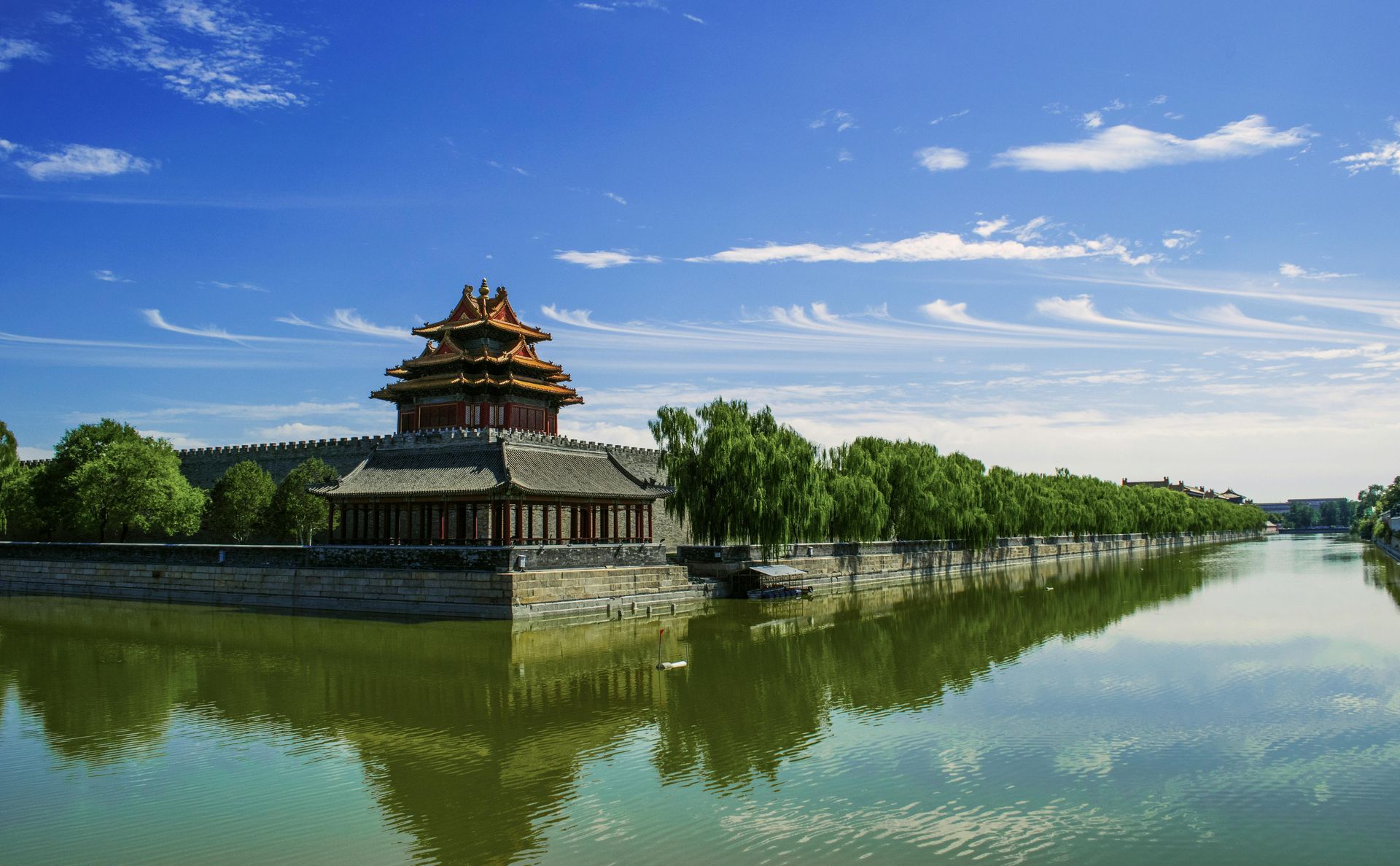The Triumph of Christ: Dominion Part 12
Tom Holland concludes his magisterial work on the Dominion of Christ in Western Culture
Tom Holland has argued all through Dominion that Western culture is the creation of Jesus Christ and still dominated by Him. As one of Holland’s colleagues has said, “it is the air we breathe.” In the last two chapters of the book, Holland completes his argument.
Holland entitles Chapter 20: Love; A.D. 1967; Abbey Road
Holland begins this chapter with a most interesting defense of the power of Christianity. As evidence he cites the Beatles. The Beatles are the most popular rock band of all time. In 1967 they performed before a world-wide audience of 350 million and released their latest single. It was almost an anthem. It’s chorus, repeated over and over was, “All you need is love.” It was a prescription with which “neither Aquinas, nor Augustine, nor Saint Paul would have disagreed.” The same sentiment was being expressed in America by “an orator of genius, with an unrivalled mastery of its cadences.” Martin Luther King was an apostle of love. The Beatles did not take their message of love from the Bible, as King did. “They took it for granted.” Like modern Westerners they did not realize that their understanding of love was drawn from the Christian heritage.
The “rights” movement in America came to involve not only blacks, but women and homosexuals as well. But these movements all drank from the same well. “All human beings possessed an equal dignity.” A Roman would have laughed at such nonsense. Nietzsche had nothing but contempt for it. But at least he understood its origin—the Bible. In 1971 John Lennon wrote the anthem of atheism, the song “Imagine.” But Lennon’s atheism was “unmistakably bred of Christian marrow.” So too was the greatest concert of all time in 1985—Live Aid. It was designed to raise money for suffering Africans. Why would rich Western rock stars raise money for poor black people on another continent? The answer was their Christian past.
Holland devotes a good portion of this chapter to the spectacular growth of Christianity in Africa. In 1900 about ten million Africans called themselves Christian. By 1984 the number was 250 million. (And today it approaches 700 million.) The Christian gospel was attractive to this gigantic number of Africans and was the major factor in the undoing of Apartheid. “It was Christianity that had provided the colonized and the enslaved with their surest voice. The paradox was profound. No other conquerors, carving out empires for themselves, had done so as the servants of a man tortured to death on the orders of a colonial official.”
The last section of this chapter is devoted to 9-11 and its aftermath. George Bush could not understand why people of Muslim background would carry out such an attack. Bush, like most Westerners, thought his values were the values of countless million Muslims. Bush’s policies were met by anti-war and anti-colonial protests. But the protesters overlooked an important fact: their objections to imperial policies came not from the colonized but the colonizers. Opposition to empire came out of a long tradition of the Christian understanding of politics. Bush would never understand a man like Abu Musab al-Zarqawi. Al-Zarqawi saw the world through a different, non-Western lens. The U.N. had declared that all human beings had natural rights. But al-Zarqawi rejected this obviously Christian formulation. Humans had no natural rights and there was no natural law. The idea that there should be equality between men and women, Muslim and non-Muslim, had no place in Islam. Bush thought his values were universal. They are not. They are Christian and Western culture has been completely infiltrated and dominated by those values. They have “dominion” over Western thought.
Holland entitles his last chapter, Chapter 21: Woke; A.D. 2015, Rostock
Facing the Syrian refugee crisis, Angela Merkel—chancellor of Germany--made the decision to “abandon any lingering sense of the [European] continent as Christendom and open it up to the wretched of the earth.” She had absorbed a morality that she thought was universal and she said, “Islam, in its essentials, was little different from Christianity.” What she did not realize was that “Germany, remained in its assumptions about how a society should best be structured, profoundly and distinctively Christian.” She was unwittingly demanding that for Muslims to enter European society they had to twist their religion into something decidedly different. They had to submit to a society of human laws rather than the laws of Allah. Secularism was not neutral. It was produced “by the sweep of Christian history.” The West had become skilled at “repackaging Christian concepts for non-Christian audiences.”
The publishers and staff of the French satirical magazine, Charlie Hedbo, learned this the hard way. After satirizing Mohammed the same way they had been satirizing Christianity for years, Muslim gunmen broke into their headquarters and killed nine of them. They could not understand it. Didn’t they buy the secular conceit that “all religions are the same?” To imagine that secular values were timeless was the “surest evidence of how Christian they were.”
Holland then turns to Hollywood and the belief that there should be no restraints on human appetites: drugs, sex, and violence were packaged as entertainment. But then Hollywood learned what the Romans and Greeks knew all along. Sexual license is only the province of powerful men. Everyone else is a victim. Enter Harvey Weinstein. The “Me-too” movement was built on a solidly Christian assumption. Even men’s appetites were to be restrained. Margaret Atwood’s novel, A Handmaid’s Tale, told of a dystopian future of women enslaved and abortion denied. Though the feminists repudiated the Christian faith, their arguments for male restraint were from the very “womb of Christianity” itself. “America’s culture wars were less a war against Christianity than a civil war among Christian factions.”
Holland writes, “Christianity, it seemed, had no need of actual Christians for its assumptions to still flourish….Like dust particles so fine as to be invisible to the naked eye [Christian morals and presumptions] were breathed in equally by everyone: believers, atheists, and those who never paused to so much as think about religion.”
Holland ends his book with a section that is poignantly personal. He speaks affectionately of his godmother, Deborah Gillingham, and her determination to raise him in all things Christian. Holland admits that his book is about the lofty peaks of history—the rise and fall of civilizations, popes and theologians, revolutions and reformations. But “the story of how Christianity had transformed the world would never have happened without people like my Aunty Deb.” She provided him with a model of what an individual Christian looked like. And Holland recognized the immense power of such people. “It was always in the home that children were likeliest to absorb that…which has come to be so taken for granted that it seems like human nature. The Christian revolution was wrought above all at the knees of women.”
Christianity, Holland says, is “the most influential framework for making sense of human existence that has ever existed.” Even the modern myth of atheistic humanism is entirely a product of the Christian past and shot through and through with Christian assumptions. “To be a Christian is to believe that God became man and suffered a death as terrible as any mortal has ever suffered. That is why the cross remains…what it has always been: the fitting symbol of the Christian revolution.”
This is a powerful book. Even as I put the finishing touches on this last video, one of the world’s best known public intellectuals, and a woman of iconic status, Ayaan Hirsi Ali, has announced she has become a Christian. And she credits Holland’s book as a factor in her conversion. Anyone who reads this book should, at the very least, acknowledge their debt to Jesus Christ and His disciples who built this fabulous culture.
Allow God to speak to you this day. Let the truth of Jesus Christ’s immense and transcendent power wash over your soul. Grant Him dominion over your life.











